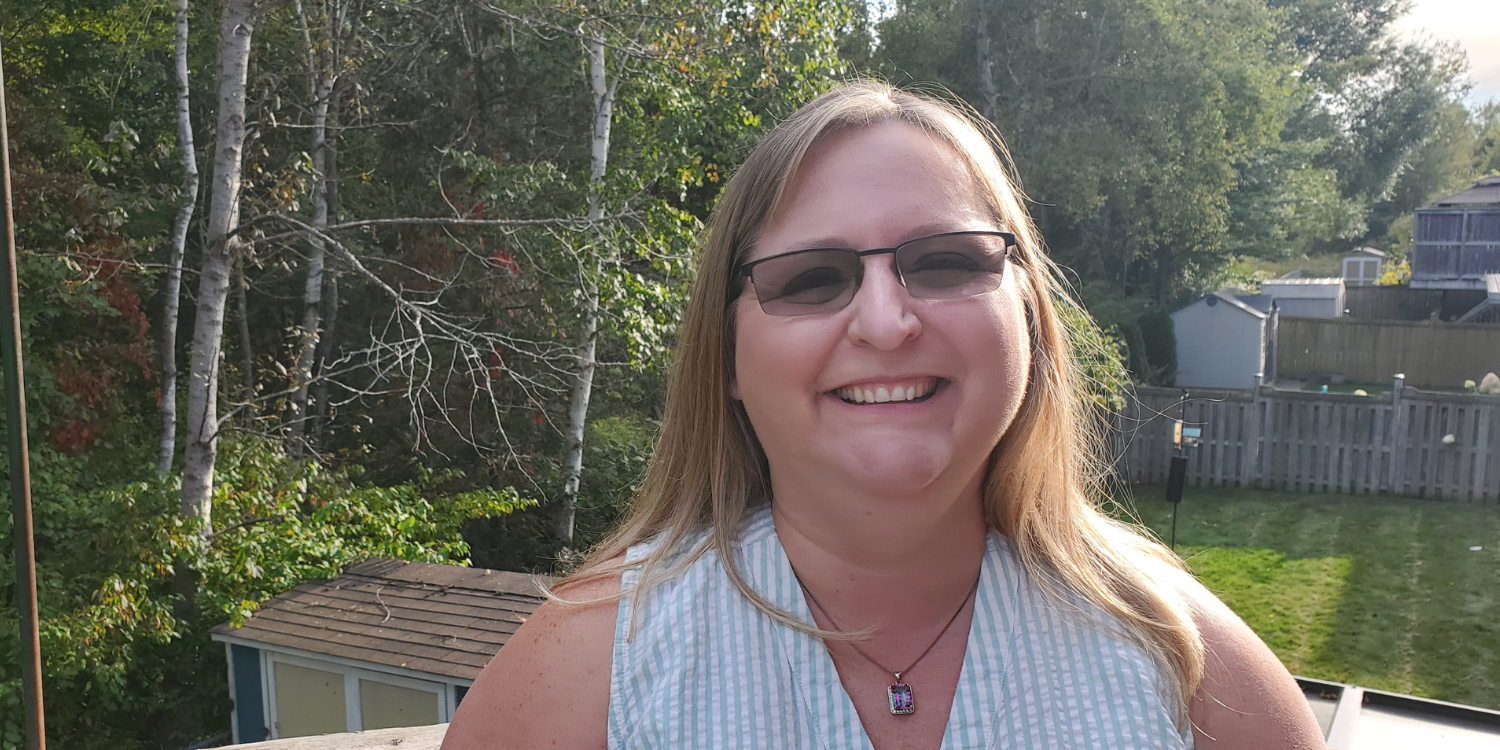Ontario is one of the few provinces with a dedicated Civics class, a half-course that gets bundled with Careers in Grade 10.There is a common perception that people don’t want to teach this course, and it is routinely assigned to new or inexperienced teachers.
Nothing could be further from the truth at Barrie North Collegiate, where Christine Penrose and her Canadian and World Studies department colleagues won’t allow that to happen.
“Civics is a huge program at our school,” Penrose says. “There’s a passion about it within our department. We won’t let it be one of those courses that kind of gets knocked out to the fields where anybody can pick it up. We want our core doing it, so we fight for it.”
Penrose fights for Civics because she is passionate about the subject and knows that passion is required to make it come alive for students. “When I teach my courses, I have to be excited about it. If I’m not excited about it, kids aren’t going to be excited about it.”
She sees her role as a civics educator as helping students make the connections between governments and elections and relatable issues, empowering students to join political conversations and find their voices.
“I think a lot of the time, young people are told to just sit down, be quiet,” she says. “They’ve been told so long that their voice doesn’t count. And they need to know that it does.”
Penrose acknowledges that students are not always on board with learning about civics to start with. But her class is different from what they expect and they are soon surprised to find themselves engaged with the materials.
“It’s been amazing because there’s been students that were like, ‘ugh, stupid course,’ on the first day, because they don’t want to do it,” she says, “and then by the end, they’re the ones who are signing up to volunteer, or they’re the ones who are talking about politics now.”
Young people have been told for so long that their voice doesn't count. And they need to know that it does.
She attributes this in part to the safety she is able to create in the classroom, with “closed door conversions.” “We will have those controversial conversations, I’m not afraid of them,” she says. “If they know it’s safe, I find the kids just start to open up.”
Over time, Penrose observes the effect of this type of participation-building is an interest in political topics. “Now they’re the ones asking the questions – they’re not just sitting hunched over in the corner there. They’re actually wanting to be part of that conversation.”
Penrose has incorporated all of CIVIX programs into her teaching: Student Vote, Rep Day, Student Budget Consultation, CTRL-F, and most recently, PoliTalks.
Not surprisingly, Student Vote at Barrie North Collegiate is a show-stopper. It is a whole-school event, with students participating in all kinds of informational activities to help their fellow students make an informed choice at the polls.
They create videos, run school news broadcasts, research and interview candidates about their platforms and create posters that are displayed prominently for everyone to see. “We often see the teachers looking at them, to find out who their candidates are and who they should be voting for, so it’s actually a great resource, not just for our students.”
Penrose also incorporates Student Vote themes into material she uses between elections and supports others through mentorship and resource sharing. “We’re a school that doesn’t hide our stuff. I’ve shared my entire courses with teachers from other schools, even other boards, because when you don’t even know where to start, I think sharing is the first thing.”
The effects of all this work ripple out into the community. Penrose says she frequently hears from parents who voted for the first time because of their child. Her students have gone on to volunteer at polling stations and will keep in touch, letting her know when they go vote for real.
This is the power of a civic education that is relatable and engaging. “It can be hard because we don’t think students are interested in government,” Penrose says. “But we can change that mindset and make it fun, make it approachable, make it so they know there is something they can do now as young people, and carry it on through their life.”
At a Glance
Name: Christine Penrose
Location: Barrie, Ontario
Grades Taught: 10-12
Subjects Taught: Civics, History, Understanding Canadian Law
Years Teaching: 18
Years Involved with CIVIX: 17
CIVIX programs used: Student Vote, Rep Day, Student Budget Consultation, CTRL-F
Key Motivation: “My motivation has always been to get students out to vote. That’s still it, but I think right now, in this climate, they also need to know that there is the ability to agree to disagree, they need to know that they want to grow. And I want to keep it interesting for the kids.”
